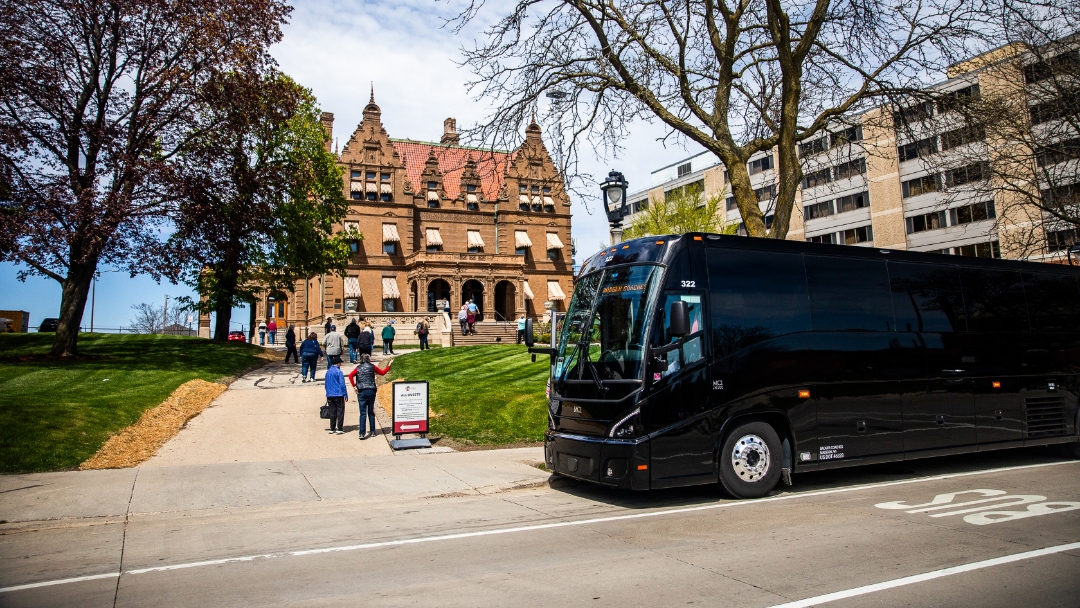Motorcoach Travel Generated $158 Billion in Economic Impact in 2024, New ABAF Report Shows
Updated findings from Tourism Economics quantify the nationwide footprint of motorcoach travel in 2024

The American Bus Association Foundation (ABAF) has released its most comprehensive analysis to date of the motorcoach industry’s economic footprint—and the findings underscore just how essential motorcoach travel remains to the U.S. economy. According to the revised 2025 Economic Impact of Motorcoach Travel in the United States report, motorcoach activity generated $158 billion in total economic impact in 2024, supporting more than 890,000 jobs nationwide. New data from scheduled service operations augment the previous research results from the initial impact report released in September.
The study, conducted by Tourism Economics, highlights the combined strength of group travel, charter operations, sightseeing, scheduled service, and intercity bus travel. Together, these sectors accounted for 37.6 billion passenger miles last year—an indicator of substantial demand for both leisure and essential transportation services. Direct spending totaled $69.8 billion and expanded significantly as it moved through the U.S. economy, fueling revenue, wages, and tax receipts in nearly every sector.
A Powerful Driver of Jobs and Local Economies
One of the report’s most compelling insights is the significant role motorcoach travel plays in sustaining jobs. In 2024, direct spending supported 516,000 jobs, with the broader economic effects adding another 374,000 jobs across industries such as food and beverage, retail, entertainment, lodging, and transportation. The food and beverage sector benefited most, with more than 225,000 jobs tied to motorcoach-related spending.
This job creation mirrors the findings of ABA’s 2024 Motorcoach Census, which documented strong workforce demand and continued recovery across companies of all sizes. That report noted increased hiring, expanded service capacity, and rising demand for both charter and scheduled service—trends reinforced by the economic impact study.
Group Travel Remains a High-Value Economic Engine
Within the broader sector, group travel remains a cornerstone of the motorcoach economy. In 2024, group travel alone generated $39.8 billion in direct spending and an $89.3 billion total economic impact, supporting more than 515,000 jobs. Travelers contributed significantly to local tourism economies: $13.2 billion in food and beverage spending, $7.5 billion in retail, and $7.2 billion in recreation.
These findings align with ABAF’s 2024 Motorcoach Group Travel Economic Impact Report, which highlighted how motorcoach tourism drives visitor spending into small towns, gateway communities, and major travel regions that rely on group tours to support year-round employment.
Scheduled Service Strengthens Intercity Mobility
Scheduled service—representing intercity and airport-to-city routes—also delivered notable economic gains. Travelers using scheduled services generated $30 billion in direct spending and a total impact of $68.7 billion in 2024, supporting 374,121 jobs. Food and beverage, transportation, and retail sectors again ranked among the top beneficiaries.
The continued strength of scheduled service reflects national intercity mobility trends seen across ABA’s research portfolio, where pre-owned fleet growth, expanded routes, and shifting travel patterns have reshaped demand.
A Critical Contributor to Public Revenues
Across all segments, motorcoach travel generated $27.7 billion in total tax revenue, including nearly $16 billion in state and local taxes. The report notes that every U.S. household would need to pay an additional $209 annually to replace these state and local revenues—underscoring the industry’s essential role in funding public services.
A Vital Component of the U.S. Transportation and Tourism Landscape
The 2025 analysis reinforces what ABA members see every day: motorcoach travel is not only an affordable and sustainable mode of transportation, but also a major economic pillar that supports jobs, drives tourism, and connects communities.
As the industry continues to grow and evolve, ABAF’s data provides a clear foundation for ongoing advocacy, investment, and strategic planning—ensuring motorcoach travel remains a thriving part of America’s transportation future.




